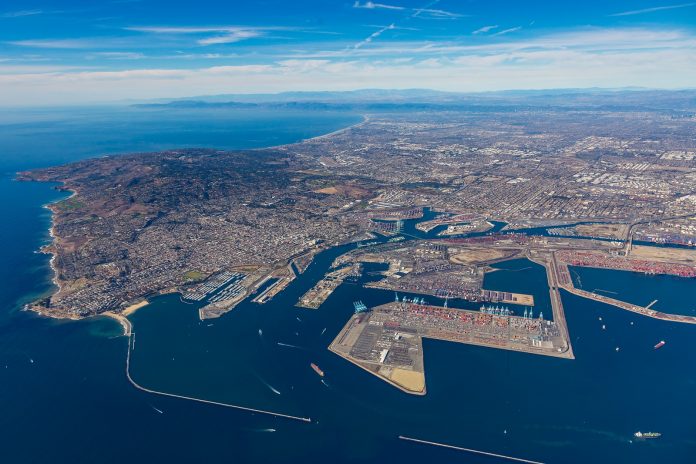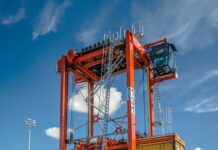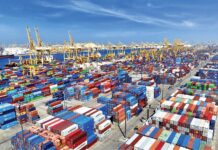
The ports of Los Angeles and Long Beach will forge an alliance to strengthen collaborative measures in the areas of cargo movement efficiency, connectivity, workforce development, cybersecurity and metrics under an agreement approved by their respective Harbor Commissions.
“Our two ports are the fastest way to move goods between Asia and U.S. markets and manufacturers,” said Port of Long Beach Executive Director Mario Cordero. “The kind of cooperation that will flow from this agreement ensures we will continue to be the most efficient gateway for shippers.”
“America’s two largest and most competitive ports have a long and successful history of collaborating on key issues,” said Port of Los Angeles Executive Director Gene Seroka. “This agreement significantly expands these efforts and underscores our shared commitment to lead and succeed.”
The nation’s largest seaport complex will work in concert with industry stakeholders to identify and address operational issues to unlock additional efficiencies and lower costs for shippers while improving sustainability, business continuity and security.
The two neighboring ports that share the San Pedro Bay move 37% of the nation’s containerized imports and 25% of its exports. More than 3 million jobs nationwide are connected to the complex. Meanwhile, the ports continue to face competitive challenges for market share.
“I look forward to the collaboration and results from this important initiative,” said Los Angeles Harbor Commission President Jaime Lee. “By tackling these issues with a unified approach, both ports and our stakeholders will be better prepared for the challenges ahead.”
“In today’s competitive environment, where cargo owners have more choices, the ports of Long Beach and Los Angeles are stronger when working together, collaborating with all of our labor, industry, environmental and community stakeholders,” said Long Beach Board of Harbor Commissioners President Bonnie Lowenthal.
The newly approved memorandum of understanding (MOU) is an opportunity to explore five areas of additional cooperation that will enhance competitiveness: cargo transfer predictability, digital connectivity, cybersecurity, establishing metrics and workforce development.
The Los Angeles Board of Harbor Commissioners approved the MOU on Feb. 20. The Long Beach Board of Harbor Commissioners approved the MOU on Feb. 24. Both votes were unanimous.
The first steps will be for the staff of the two ports to establish a work plan that will prioritize efforts, create workgroups and define objectives for each of the areas outlined in the MOU. These efforts will be done in collaboration with stakeholders from marine terminals, labor, drayage, railroads, shipping lines, cargo owners and more.
อัพเดตข่าวสารและบทความที่น่าสนใจในอุตสาหกรรมโลจิสติกส์ก่อนใคร ผ่าน Line Official Account @Logistics Mananger เพียงเพิ่มเราเป็นเพื่อน @Logistics Manager หรือคลิกที่นี่













